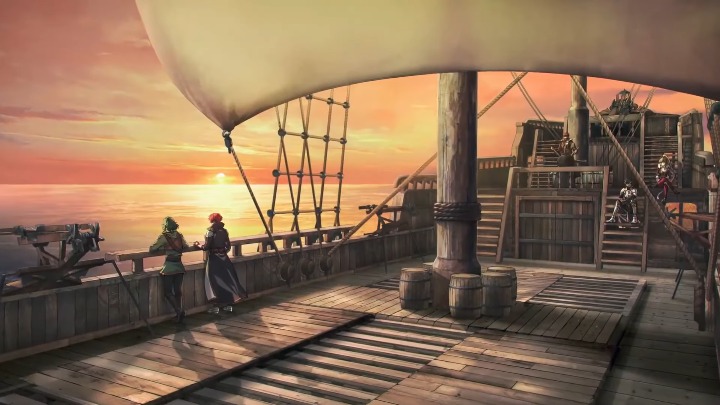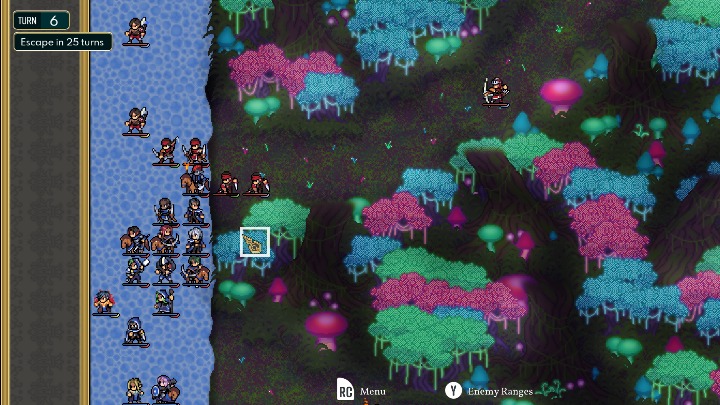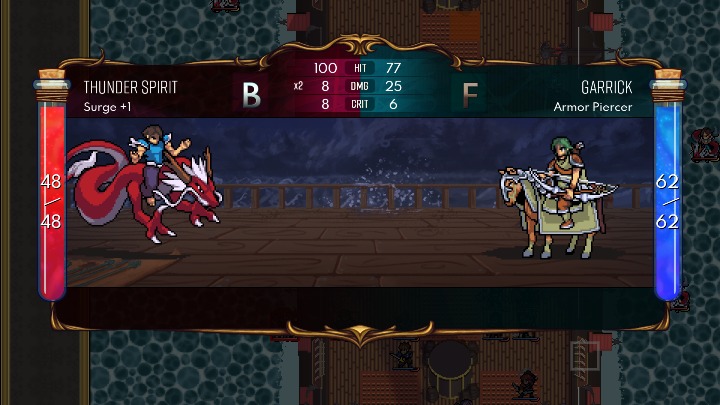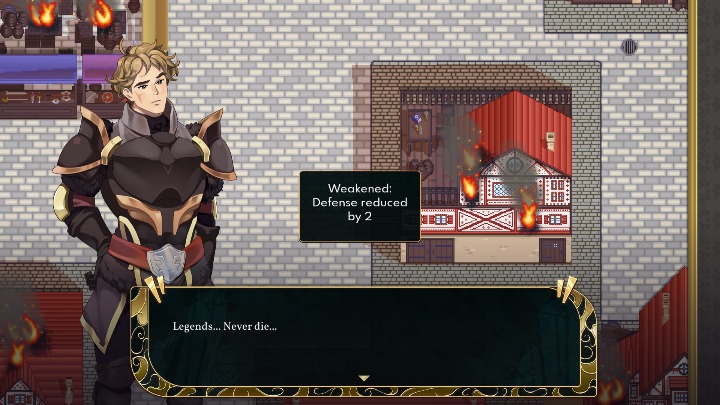
Like many strategy RPG lovers in the western world, I fell in love with the Fire Emblem franchise in 2003, when Fire Emblem: The Blazing Blade was released on the Game Boy Advance. I was vaguely familiar with the series and characters thanks to Super Smash Bros. Melee, but I had to experience it for myself to realize how special it truly was. Not only was I enraptured by the story and characters, but I found the gameplay to be enthralling. I’d play maps over and over again, working to ensure that every one of my precious party members made it through in one piece.
Since then, the series has changed tremendously, for better and for worse. Permadeath, which was once a series staple, is now optional, giving players more control over how they approached the game. While character relationships were always an important part of the franchise, 2013’s Fire Emblem Awakening put them front and center. Older Fire Emblem titles offered very few opportunities to grind, but in new entries, you can grind to your heart’s content.

If you’ve found yourself longing for the days of classic Fire Emblem, Dark Deity just might be able to scratch that itch. The fantasy SRPG is far from being a Fire Emblem clone, but it definitely wears its influence on its sleeve. Like Fire Emblem, Dark Deity has a sprawling cast of characters, with 30 playable characters in total. When characters fight alongside each other, they grow closer, allowing you to view bonding events. For the most part, these events aren’t romance-focused, but I suspect that at least a few of my party members will be paired off by the time I reach the end of the game.
Dark Deity also features a robust job system, allowing you to mold characters into the type of fighter you want them to be. Each character starts off with a pre-assigned class. When characters reach level 10, you’ll have the opportunity to promote them, which allows you to evolve the class in one of four ways. When characters reach level 30, you’ll be able to promote them a second time, leaving you with an ultimate version of the character’s original job. Unfortunately, there’s no way to re-class characters, but the system still offers plenty of opportunities for customization.

Dark Deity‘s weapon system feels similar to Fire Emblem‘s weapon triangle, but there are some notable differences. Certain weapon types are strong or weak against other types of weapons, but Dark Deity has four weapon types in total, not three. You have the ability to change your character’s weapon mid-battle, allowing you to strategically adjust as needed.
Dark Deity also differentiates itself from Fire Emblem when it comes to characters falling in battle. Dark Deity doesn’t have any sort of permadeath system, but it has something else in its place: the Grave Wounds system. If one of your characters is defeated, they’ll live to see another day, but their survival will come at a cost. Your character will sustain lasting wounds, leading to stat penalties.
Personally, I’m a big fan of this system, and I think I prefer it to permadeath. Since there’s a penalty for defeat in battle, I have to play cautiously, and I’ve definitely reset a few times when I’ve made dumb mistakes early in a fight. However, the consequences for defeat feel manageable. I’ve never been willing to lose my units forever in Fire Emblem, but I’ve left some of my Dark Deity characters with bruises and broken bones.

Gameplay is crucial to a game like this, but characters and story are important too. Dark Deity‘s story hasn’t blown me away thus far, but it’s more than serviceable, and I’ve been enjoying the ride. Not every party member has made a big impression on me, but everyone has a personality, backstory, and feels distinct from other members of the cast.
Some of my personal favorites include Alden, a tiny, scrappy little mage with more power than he knows what to do with, and his older sister Maren, a healer whose sweet nature belies the depth of her personality. I’m also a big fan of Sloane, a former heiress that’s far less of a snob than she pretends to be, and Elias, an analytical fighter with an intellectual curiosity that sometimes clashes against his protective nature.
As you might be able to guess, Dark Deity really shines in its character interactions. I’ve never found myself bored when reading through bonding events, and I frequently make a point of pairing off certain characters so that I can see more of their story. In spite of the large cast, there’s not a single party member that feels like a filler character, and there are interesting interactions to be found with every character pairing.

Dark Deity doesn’t quite reach the highs of classic Fire Emblem, but it’s still a solid and compelling experience. The map variety is impressive, and many of them have objectives that go beyond “Rout the enemy.” There are defensive maps, timed maps, and even maps that require you to pull off heists. There are a few quality of life issues — I’d love the ability to quick save on long maps — but I’m hopeful that some of these problems will be addressed in future patches.
Whether you love newer Fire Emblem, long for the games of the past, or you’re someone that mostly sticks to Disgaea, Dark Deity is a title that strategy RPG fans should give a closer look. Although it’s clearly inspired by old school Fire Emblem, it’s also found plenty of ways to innovate on the classic formula. I’ve been addicted to the game since I’ve started playing, and I’m eager to see what the developers do next.